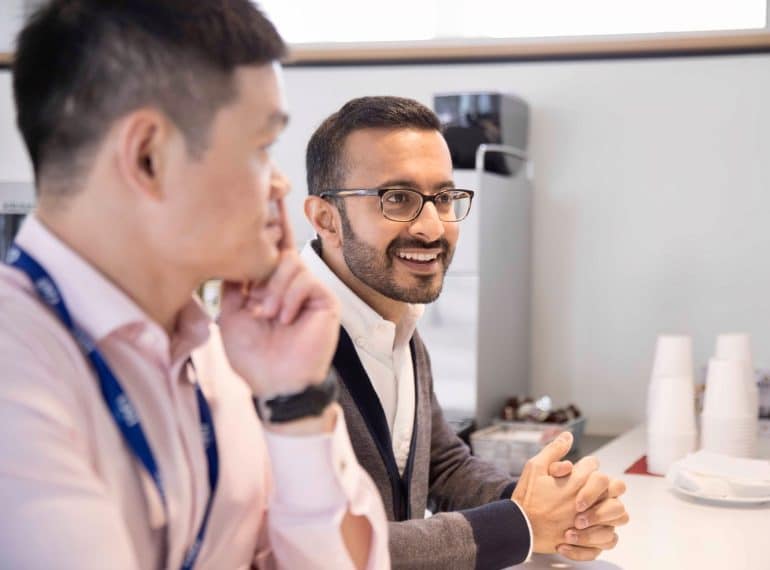
Still in his thirties, lawyer Mantraraj Budhdev is today not only global Head of Compliance for one of the world’s biggest logistics companies, but also its Head of Legal, responsible for the Americas, Europe and Russia.
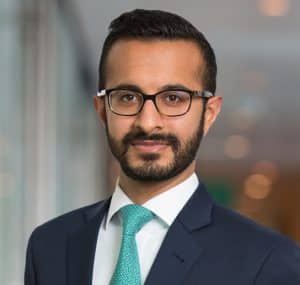 Throughout his life, he has worked ferociously hard and overcome disappointments, bad bosses and discrimination on his way to achieving his current success with Dubai-based DP World.
Throughout his life, he has worked ferociously hard and overcome disappointments, bad bosses and discrimination on his way to achieving his current success with Dubai-based DP World.
This month, as he celebrates the tenth anniversary of qualifying as a solicitor, Mantraraj took the opportunity to reflect: “The message I would convey is that a lot is down to luck, being in the right place at the right time. But more importantly, it’s about seeing opportunities as they come up and taking them and making the most of your career. That is easier said than done, and who you work for is very important.”
Yet alongside luck and capitalising on opportunities, Mantraraj (OE 1997–2004) has also very deliberately taken steps to ensure he does not drift, asking himself some hard questions every two years, fully prepared to adjust as necessary, whether that means a change of employer or even a change of career.
Mantraraj grew up in Radlett, where his family still lives. In Year 6, he had applied, among others, to The Haberdashers’ Aske’s Boys’ School. Habs didn’t offer him a place, but something about QE had felt right to Mantraraj from the outset. “I think QE was a huge turning point in my life. I have very, very fond memories of it and I am proud to say I am state-educated.
“QE is not an easy place – or at least at that time it wasn’t – because you are among huge numbers of people. I saw people fall through the cracks, and back then it was easy to fall through. You could make the most of it, but if you didn’t want to help yourself, no one else was going to do it for you,” he says. He contrasts his experience with that of his sister who went to an independent girls’ school, where smaller class sizes made possible a rather different approach.
He traces his desire to be a lawyer back to his first years at QE and to the American TV show, Perry Mason, about a larger-than-life criminal defence attorney. “I watched it religiously and absolutely loved it.”
It was not only his career choice that was established at QE: a fearsome work ethic emerged, too. “I was never one of the popular kids, the cool kids: I was a grafter; I know I work hard.”
Unsure what type of lawyer he wanted to be, he took steps to find out. “I ended up doing work experience at quite a broad range of firms, from the High Street solicitor doing conveyancing and the like to Citizens’ Advice Bureau-type work and law firms in the City.”
As a senior pupil, he undertook a week’s summer holiday work experience with Canary Wharf colossus, Clifford Chance, and with Travers Smith, a more boutique City law firm. It was at these that he found his métier: “I like the buzz of the corporate world.”
He applied unsuccessfully to Cambridge – “I am not ashamed to say I was an Oxbridge reject” – so went instead to the London School of Economics to read Law. And he says that while campus universities, and even Oxford and Cambridge, offer one sort of student life, he greatly enjoyed the very different experience he received at LSE. “I had a fantastic time. I would not change it; it prepares you for life in the city.”
Yet while his studies were progressing well, Mantraraj realised that his contemporaries seemed to be advancing with their careers more than he was, being offered places on firms’ vacation schemes and training contracts. “I was getting nowhere.”
It was then that he instituted one of the unsparing career reviews which have been a recurring theme of his life, asking himself if law was still the right career for him. “Even the best-laid plans need to be critiqued – including those you have cherished from the age of 13…you have to think again and make sure you are on the right track. Every two years, I check in on myself: am I where I want to be and going where I want to go?” On this occasion, he decided to wait a little longer.
At the very last moment, Linklaters asked to interview him. The message reached him when he was on holiday with his family and, his confidence by this point at a low ebb, he almost didn’t attend. In the event, however, he went along and “hit it off with the senior partner.
“That completely changed the trajectory of my career.” He was offered a training contract and was soon enjoying the buzz he had once felt with Clifford Chance, albeit not at Canary Wharf but in the rather less stimulating Barbican, where Linklaters is based.
After two years there, he duly qualified as a solicitor on March 9th 2011. Offered the choice of joining the firm’s derivatives practice – “too niche” – or the corporate team, he opted for the “very exciting” work of the latter.
But, he adds quickly: “It’s far from glamorous – not at all like Suits on TV! The reality is very long hours. It’s not easy by any stretch.” He calculates that for one two-month spell, on average, he slept fewer than three hours a night.
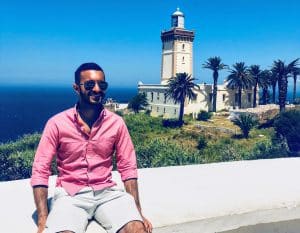 He spent time on secondment with Goldman Sachs and Royal Bank of Scotland, and then was asked to go to Dubai in early 2013 as a secondee to the Dubai World investment company of the city’s government.
He spent time on secondment with Goldman Sachs and Royal Bank of Scotland, and then was asked to go to Dubai in early 2013 as a secondee to the Dubai World investment company of the city’s government.
Two more years went by and he was back in London. Now four years qualified, he pressed for a discussion with his boss about whether he was going to “make partner”. He had identified in advance three possible scenarios for himself: trying to make partner with Linklaters; moving to in-house practice, or leaving law altogether. “I got a rather woolly response: one in ten in my intake would make partner in six years.”
Dissatisfied with this, over a coffee, he spoke to a colleague who had left Linklaters and was now at the American-British law firm, Hogan Lovells, as a partner. They were, he said, looking to hire two people with the possibility – “although no promises” – of making partner in three years.
Mantraraj duly made the move to Hogan Lovells. “For some reason, I was seen as a bit of a win for them. At Linklaters, I had a generalist role, which set me in good stead.” He was able to help his new firm secure the big fees that came with public M&A.
One day at Hogan Lovells, a senior partner took him aside and explained that they were trying to cultivate “a really important relationship”, namely with Goldman Sachs. With some reservations, he took on a secondment there in September 2016, which lasted for six months. At the bank, he had “two bosses, one good, one bad. Who you work for makes or breaks your experience. Your boss has so much influence over how your career develops.”
In early 2017, he was back at Hogan Lovells, where the corporate team was then struggling to some extent, having to rely on referrals from the firm’s huge US business. He realised there was a bottleneck above him, with senior people not being promoted, which in turn was harming his prospects for making partner.
At another two-year point in his career, he was ready for a change. It came in the most unexpected way: “DP World’s General Counsel, who was based in Dubai, happened to be in Paris on business and was having lunch with a Linklaters partner. He told this contact that DP World was looking for a replacement because their Head of Legal for Europe and Russia was leaving.
“This Linklaters person happened to be in London about a week later and was sitting in the partners’ dining room.” A strict rule applied there that diners had to take the next available chair, rather than waiting for a table to become available so they could eat with their close colleagues and friends. “Purely by chance, this chap from Paris was sat next to my first boss from 2009 and they got talking. She called me the very same day and said: ‘I just heard something that would be perfect for you.’”
He sent her his CV and, somewhat to his surprise, she sent it straight on to DP World. Mantraraj thought he was too junior to be successful, but after going through no fewer than five rounds of interviews, in the summer of 2017, he joined DP World.
“This is how things often transpire and it demonstrates how your network is important. Sometimes these things come through random routes. I don’t believe in nepotism at all, but I do believe in opportunities, and you have to create something from them for yourself when they come along.”
He thought he might stay at DP World for three or four years and then move on to keep up his career momentum: “In in-house practice, people don’t really leave: it’s not a conveyor belt like a law firm,” he explains. But almost four years in, he remains firmly committed to the company. “I ended up progressing here in a way that I hadn’t expected to be – and very quickly.”
In 2019, he was asked to create and run a new global compliance function, while still retaining his existing role. DP World is a huge business, with 55,000 employees worldwide, so the new job was an enormous responsibility. Then, from February this year, he was given the additional task of being Head of Legal for the Americas, while still fulfilling this original role for Europe and Russia.
The nature of what he does is now changing. A year ago, he had no team; now he has five people directly reporting to him and a further 16 indirectly. “I need to slowly let them do a lot more of the day-to-day work and I can be more strategic. So, it’s a transition, but it’s gradual.”
In seeking to lead the team well, he has drawn on his own negative experiences with “horrible” bosses in the past. But he readily acknowledges that he has had “incredible” ones, too – mentors with whom he has continued to maintain close ties. Not least among these is his current boss who, he says, has been an enormous inspiration and support in championing him throughout the organisation, but also his former boss at Linklaters who was instrumental in his securing his job at DP World. Now a very senior partner at Linklaters, she is herself “being instructed” by DP World: “It boils down to relationship,” he says.
Mantraraj, who is based in London, has been reflecting not only on his career, but also on the extraordinary global events of the past year – coronavirus and the Black Lives Matter protests.
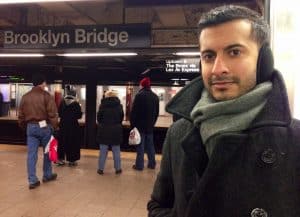 “Lockdown has been a blessing in disguise, because I have not been able to do as much travelling as I normally do.”
“Lockdown has been a blessing in disguise, because I have not been able to do as much travelling as I normally do.”
He appreciates the deeper consideration of important issues that BLM has provoked, but adds: “Change is slow and it’s incremental and it’s not going to happen overnight.” He recalls one experience during his time with his previous firm that illustrates this.
An August baby, Mantraraj was used to being the youngest in his classes at QE. Because of his fast rise, he has often found himself in a similar position in his career. On one occasion, he was about to start a meeting with a Scottish client and his (Mantraraj’s) junior colleague, a young, white man. The client, assuming he was in fact the more senior employee, had been chatting for three or four minutes and then turned to Mantraraj and said: “Could you get me a coffee, please?”
Mantraraj says: “Because I was young, I must be the junior guy, he thought, and the white, posh boy must be the senior.”
Although surprised, Mantraraj did as he was asked. “I didn’t mind, and he was the client after all.” But when it was Mantraraj who subsequently started to lead the meeting, the client realised his mistake: “He was absolutely mortified and red-faced.
“What we need is to be prepared for what the world is going to throw at us,” Mantraraj says, adding that QE, precisely because it was “not the easiest place to be in”, had helped him in just that way. “There is a level of grit available there that brings determination – if you choose to have it.”
He remains in contact with a group of fellow OEs, meeting up for weddings and keeping in touch through WhatsApp groups. Secondary school is, he points out, a unique time in most people’s lives – a seven-year period when you are together with a group of people, the make-up of which changes little. “That is not replicated, even at uni. I think it sets you up for the 40-year career ahead of you.”
Mantraraj is not married. “Sometimes balance is very hard to strike. I start my day at my desk at 7am and it will often be back-to-back calls until 7pm, and then doing other things after dinner. I am ambitious and driven, and I have been very lucky in the progress of my career. I work very hard and that comes at a cost. Sometimes I sacrifice things that I think other people would not sacrifice.”
He cites one recent occasion when he had been looking forward to meeting his QE contemporary, Anand Gangadia, a fellow lawyer, for dinner at 6.30pm. “About five minutes before 6.30, I got an email that said: ‘I need this done tonight’. The dinner therefore became a brief walk before Mantraraj had to return to the office. “Because Anand was a lawyer, he was fine about it – we remain close! It’s difficult because sometimes you need to sacrifice, so you need to go into this career with your eyes open. Nothing is as glamorous as people think,” he says, adding that he would encourage aspiring lawyers currently at QE to make sure they get exposure to the reality of the lawyer’s life.
In any spare time, Mantraraj enjoys cooking and seeing friends.
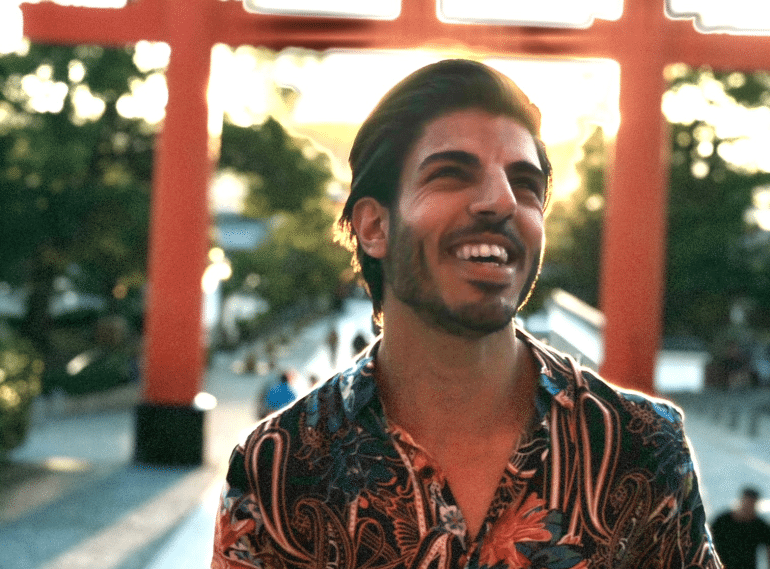
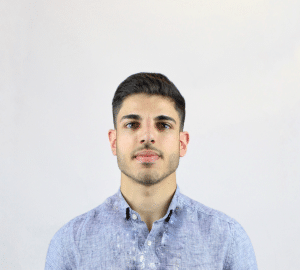 And the ship’s purpose – gathering data about the oceans for scientists looking at climate change, pollution and marine conservation – points to an area of focus for Andrew, namely sustainability.
And the ship’s purpose – gathering data about the oceans for scientists looking at climate change, pollution and marine conservation – points to an area of focus for Andrew, namely sustainability.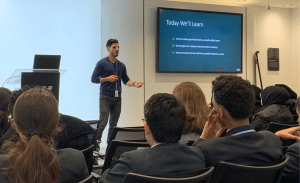 He worked briefly for specialist IT training consultancy Optimum Technology Transfer – “a really good job” – and then went to IBM in 2017.
He worked briefly for specialist IT training consultancy Optimum Technology Transfer – “a really good job” – and then went to IBM in 2017.
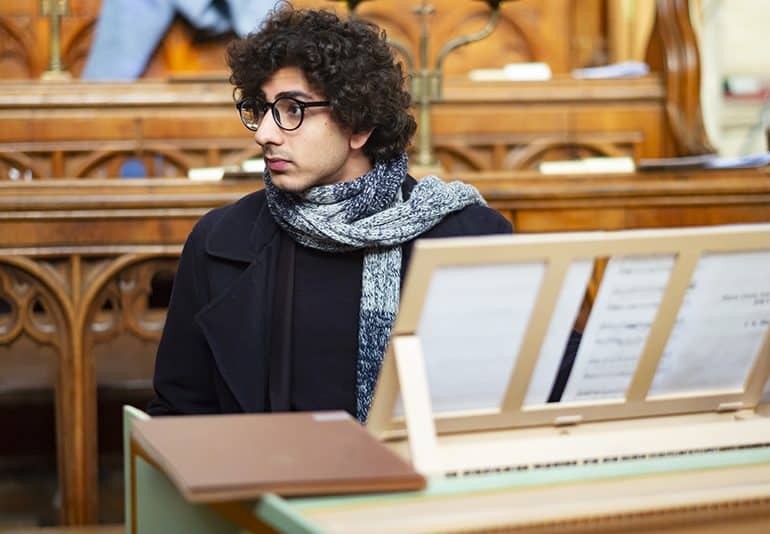
 He moved on to a Master’s thesis looking at elements of orientalism in Robert Schumann’s Myrthen song cycle, op.25 (‘Myrthen’ means ‘myrtle’, the flowering evergreen shrub native to the Middle East). “My Master’s in Musicology was completed with Distinction just down the road at St Cross College, where I was funded by the Humanities Division of Oxford University,” he says.
He moved on to a Master’s thesis looking at elements of orientalism in Robert Schumann’s Myrthen song cycle, op.25 (‘Myrthen’ means ‘myrtle’, the flowering evergreen shrub native to the Middle East). “My Master’s in Musicology was completed with Distinction just down the road at St Cross College, where I was funded by the Humanities Division of Oxford University,” he says.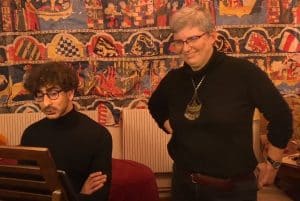 With Prof Lähnemann, he runs a
With Prof Lähnemann, he runs a 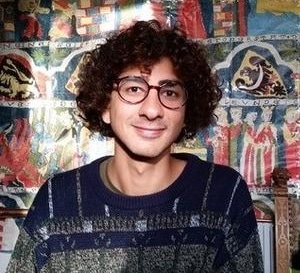 “I’m also in contact with members of the Barbershop group: Simon Purdy is enjoying a varied, freelance career as a violinist and Kavi Pau as a hybrid consultant-musician. Kavi has recently started The Third Culture Collective, a collaborative music group.” Anhad says he is looking forward to seeing how Kavi’s work develops.
“I’m also in contact with members of the Barbershop group: Simon Purdy is enjoying a varied, freelance career as a violinist and Kavi Pau as a hybrid consultant-musician. Kavi has recently started The Third Culture Collective, a collaborative music group.” Anhad says he is looking forward to seeing how Kavi’s work develops.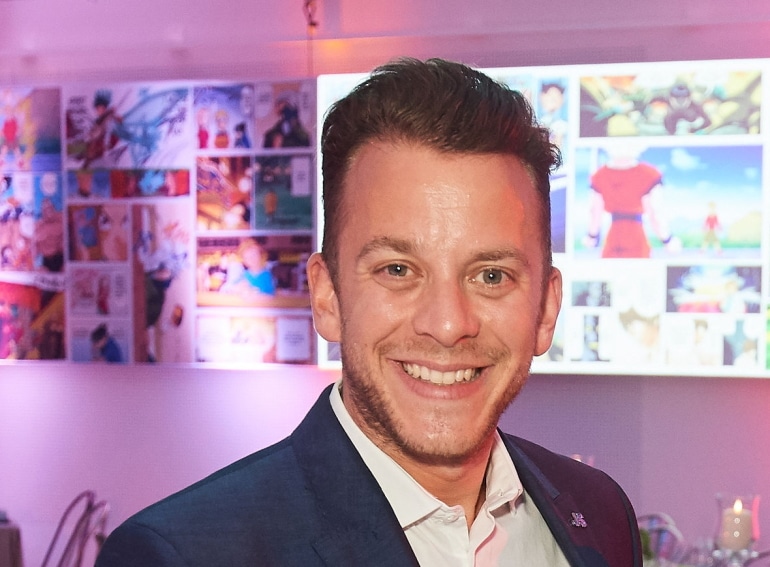
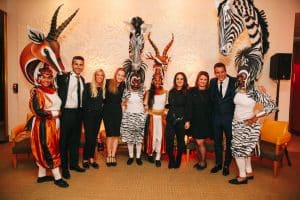 By his own admission, his event design company, JustSeventy, is not the cheapest, but that, he says, is because they offer a service that is second to none.
By his own admission, his event design company, JustSeventy, is not the cheapest, but that, he says, is because they offer a service that is second to none.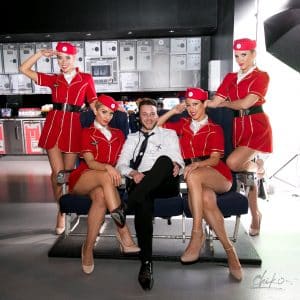 From the age of 16, he had also been DJ-ing, and in this period he won a DJ residency at a high-profile Birmingham venue that had both student and non-student nights, where he was often playing to 1,000 people.
From the age of 16, he had also been DJ-ing, and in this period he won a DJ residency at a high-profile Birmingham venue that had both student and non-student nights, where he was often playing to 1,000 people.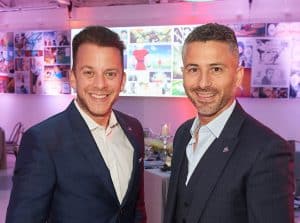 And so Laurie and a colleague, Stas Anastasiou, decided to take the plunge and strike out on their own. Launching JustSeventy in January 2011, they brought with them several clients they had worked with at Banana Split.
And so Laurie and a colleague, Stas Anastasiou, decided to take the plunge and strike out on their own. Launching JustSeventy in January 2011, they brought with them several clients they had worked with at Banana Split. At the peak in 2015–16, JustSeventy had 12 employees. There were the high points, including running the biggest bar mitzvah in the country. And yet, Laurie says, they were too often “running around like headless chickens, but not really making the money”; the need to maintain the increased overheads induced them to accept some poor-quality, unprofitable jobs.
At the peak in 2015–16, JustSeventy had 12 employees. There were the high points, including running the biggest bar mitzvah in the country. And yet, Laurie says, they were too often “running around like headless chickens, but not really making the money”; the need to maintain the increased overheads induced them to accept some poor-quality, unprofitable jobs.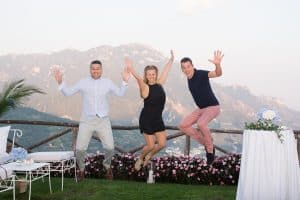 Looking back, overall, Laurie is immensely proud of what has been achieved with JustSeventy. He observed that in his generation, those who have gone on to commercial success have often been those who, like him, were not the academic high-fliers at QE. “I was definitely in the bottom half of the year in everything, always struggling a little for air! Some of the boys that have really achieved are the ones who left halfway through the Sixth Form.”
Looking back, overall, Laurie is immensely proud of what has been achieved with JustSeventy. He observed that in his generation, those who have gone on to commercial success have often been those who, like him, were not the academic high-fliers at QE. “I was definitely in the bottom half of the year in everything, always struggling a little for air! Some of the boys that have really achieved are the ones who left halfway through the Sixth Form.”
 Throughout his life, he has worked ferociously hard and overcome disappointments, bad bosses and discrimination on his way to achieving his current success with Dubai-based DP World.
Throughout his life, he has worked ferociously hard and overcome disappointments, bad bosses and discrimination on his way to achieving his current success with Dubai-based DP World. He spent time on secondment with Goldman Sachs and Royal Bank of Scotland, and then was asked to go to Dubai in early 2013 as a secondee to the Dubai World investment company of the city’s government.
He spent time on secondment with Goldman Sachs and Royal Bank of Scotland, and then was asked to go to Dubai in early 2013 as a secondee to the Dubai World investment company of the city’s government. “Lockdown has been a blessing in disguise, because I have not been able to do as much travelling as I normally do.”
“Lockdown has been a blessing in disguise, because I have not been able to do as much travelling as I normally do.”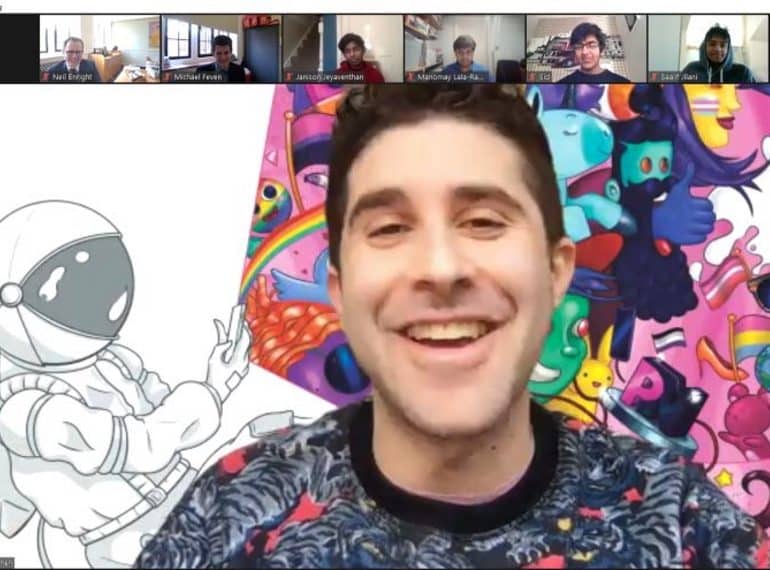
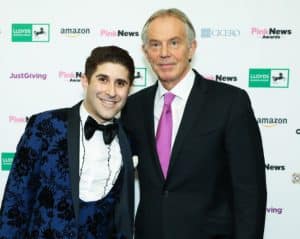 In a video conversation with the School’s Student Leadership Team and Equality, Diversity & Inclusion Ambassadors arranged during LGBT+ History Month, Ben (OE 1993–1998) told the story of his high-profile life from the age 15 to 38.
In a video conversation with the School’s Student Leadership Team and Equality, Diversity & Inclusion Ambassadors arranged during LGBT+ History Month, Ben (OE 1993–1998) told the story of his high-profile life from the age 15 to 38.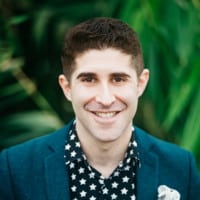 If serependity was behind him going to JFS and starting his first business, it now played a part in another episode in his professional life. “Something really random happened: my then-business owned a lot of assets – domain names – and one of the domain names was itunes.co.uk. We just happened to own it.”
If serependity was behind him going to JFS and starting his first business, it now played a part in another episode in his professional life. “Something really random happened: my then-business owned a lot of assets – domain names – and one of the domain names was itunes.co.uk. We just happened to own it.”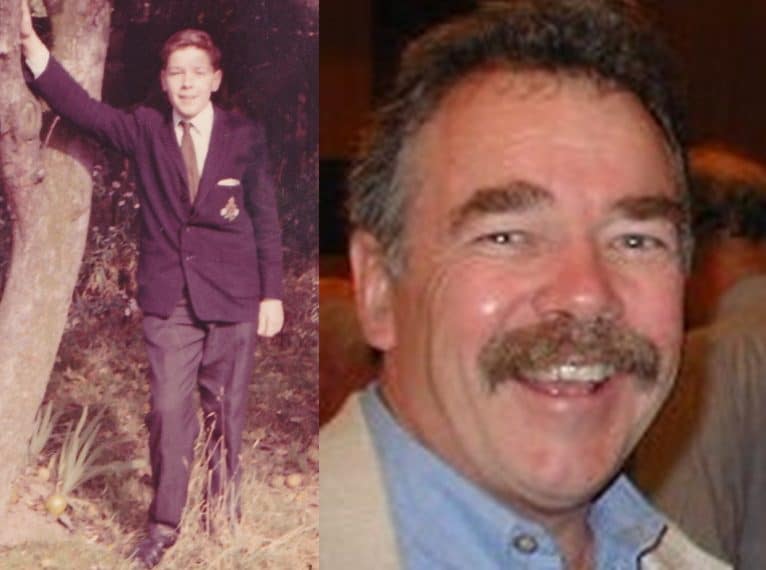
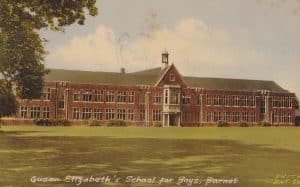 I don’t think I immediately understood what it might mean to live in another country – let alone go to school there – even though we were regular travellers between Melbourne and the island state of Tasmania to see my mother’s family. [Mike sent the postcard with the view of the School shown here to his grandmother in Tasmania.]
I don’t think I immediately understood what it might mean to live in another country – let alone go to school there – even though we were regular travellers between Melbourne and the island state of Tasmania to see my mother’s family. [Mike sent the postcard with the view of the School shown here to his grandmother in Tasmania.] Making the journey before international air travel had become commonplace, we disembarked at Tilbury after a five-week sea journey from Melbourne. And within days, we had received a letter from Queen Elizabeth’s inviting my enrolment at the School.
Making the journey before international air travel had become commonplace, we disembarked at Tilbury after a five-week sea journey from Melbourne. And within days, we had received a letter from Queen Elizabeth’s inviting my enrolment at the School.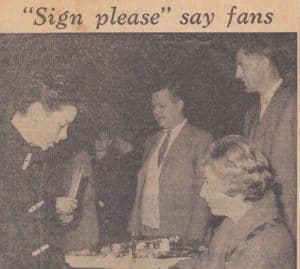 Given my ongoing enjoyment of music and an interest in social history, I have always thought that I was in the right place at the right time in 1962. After all, I got advance notice of the musical tsunami that was about to sweep the western world with the arrival of The Beatles, The Stones, The Hollies, The Animals and a myriad of others. But during my year in Barnet, my ears and eyes were also opened to an earlier era of ‘popular’ music.
Given my ongoing enjoyment of music and an interest in social history, I have always thought that I was in the right place at the right time in 1962. After all, I got advance notice of the musical tsunami that was about to sweep the western world with the arrival of The Beatles, The Stones, The Hollies, The Animals and a myriad of others. But during my year in Barnet, my ears and eyes were also opened to an earlier era of ‘popular’ music.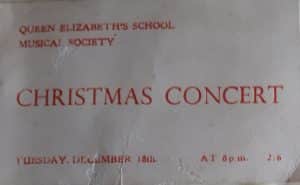 A wintry outbreak brought snow to the country in mid-December. In the days before the snow began to fall and the roads to ice up, I recall seeing a yellow-ish smog seep in under the front door of our flat in Manor Road.
A wintry outbreak brought snow to the country in mid-December. In the days before the snow began to fall and the roads to ice up, I recall seeing a yellow-ish smog seep in under the front door of our flat in Manor Road.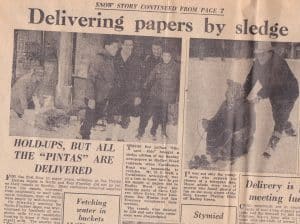 Vague whispers in the QE corridors that I had come from The Colonies were less concerning than arriving into a class half way through the School year. I was soon to find my classmates were ahead of me in several subjects.
Vague whispers in the QE corridors that I had come from The Colonies were less concerning than arriving into a class half way through the School year. I was soon to find my classmates were ahead of me in several subjects.